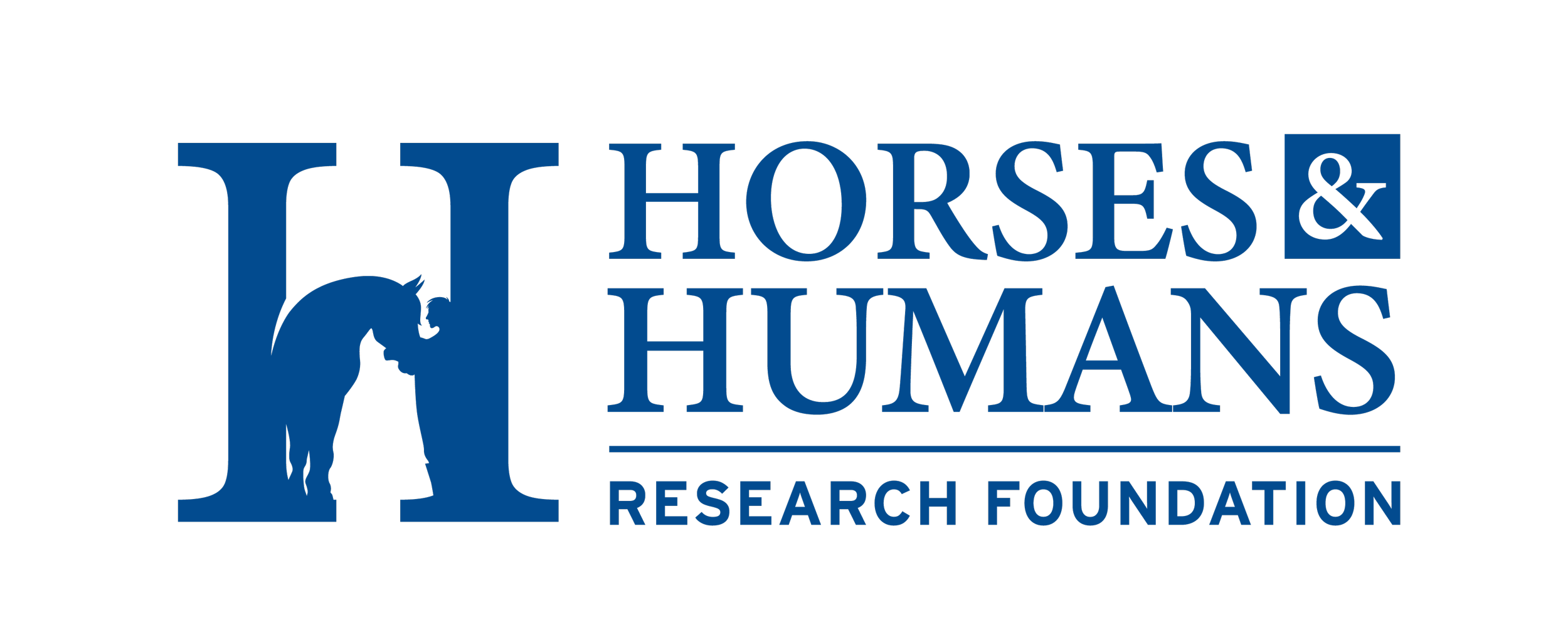Equine Well Being
Guidelines For Humans From The Horse’s Perspective
These guidelines were developed by the HHRF Equine Well-Being Task Force and are based on the beliefs that:
The integrity of the research is directly related to the well-being and suitability of the horses providing the interactions.
Horses are sentient beings that are aware of, sensitive to, and affected by their environment including the physical and emotional state of others in their presence.
When a horse is well managed and cared for with consideration and empathy, they build resilience to more effectively and safely cope with the inevitable stresses of life.
The horse needs to be in optimal physical, mental, and emotional health to enhance their ability to engage with humans.
For additional information click here to view the three page Word document.
OPTIMAL TERMINOLOGY FOR SERVICES THAT INCORPORATE HORSES TO BENEFIT PEOPLE
Follow the link for a summary and additional links.
Trauma Focused EAS Fireside Chat, has a sequel!!
June 5, 2022
Panel Discussion on EAS Research
April 13, 2022
Webinar March 2022
Clipity Clop: The Rhythms and Relationships of Mounted Trauma Processing
Webinar - A Knowledge Base for Equine Assisted Services (EAS)
Entire Presentation
Evelyn McKelvie discusses A Knowledge Base of Equine Assisted Services
Part One of A Knowledge Base for Equine Assisted Services
Nancy Paschall presents guiding questions to help centers determine if they are Ready for Research
EAAT Research Readiness - Are you Ready?
Part Two of A Knowledge Base for Equine Assisted Services
EAAT Center Research Readiness Checklist
During the recent Professional Association of Therapeutic Horsemanship International (PATH Intl) conference a presentation was made focused on understanding what an Equine Assisted Activities and Therapies Center needs to have in place prior to conducting research so that the research projects do not overly stress the capacity and operations of the Center. A didactic presentation was made, following an extensive Q & A with the presenters Robin Gabriels,PsyD, MA, Nancy Krenek,PT, DPT, HPCS, Prof. JoAnne Miller, Nancy Paschall, and HHRF Founder, Molly Sweeney and additional researchers Wendy Wood, Ph.D., OTR, FAOTA a member of the Horses and Humans Research Foundation’s Scientific Advisory Council, and Caitlin Peters,Ph.D., OTR/L.
The EAAT CENTER RESEARCH READINESS CHECKLIST© combines the prior work of Shoffner, A, Gabriels R. from the Therapeutic Horseback Riding Intervention Manual in Denver, CO, University of Colorado and Children’s Hospital Colorado, and B. Caitlin Peters, Ph.D., OTR/L, and Nancy Paschall, a member of the HHRF Board of Directors. This checklist is available free of charge but cannot be modified without permission.
The overarching themes of the presentation were: 1) honestly assess the factors in the EAAT CENTER RESEARCH READINESS CHECKLIST©; 2) a center not being ready now doesn't mean it will never ready; and 3) learn about current research findings to improve the outcomes for center participants. Completely meeting the Checklist guidelines will help centers to truly be ready, or, alternatively, decide other ways for their organizations to reap the benefits of research. The audience requested additional education about current research findings and learning more about research in general.

